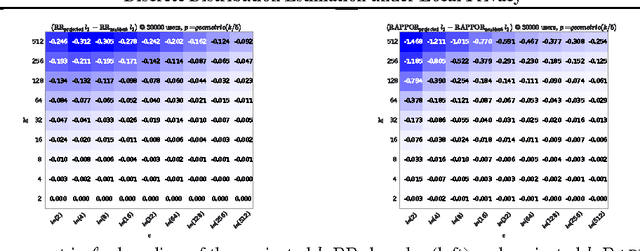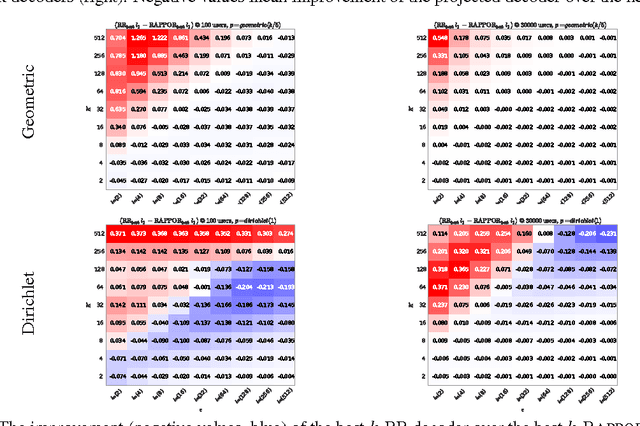Discrete Distribution Estimation under Local Privacy
Paper and Code
Jun 15, 2016



The collection and analysis of user data drives improvements in the app and web ecosystems, but comes with risks to privacy. This paper examines discrete distribution estimation under local privacy, a setting wherein service providers can learn the distribution of a categorical statistic of interest without collecting the underlying data. We present new mechanisms, including hashed K-ary Randomized Response (KRR), that empirically meet or exceed the utility of existing mechanisms at all privacy levels. New theoretical results demonstrate the order-optimality of KRR and the existing RAPPOR mechanism at different privacy regimes.
* 23 pages, 12 figures, submitted to ICML 2016 (under review)
 Add to Chrome
Add to Chrome Add to Firefox
Add to Firefox Add to Edge
Add to Edge